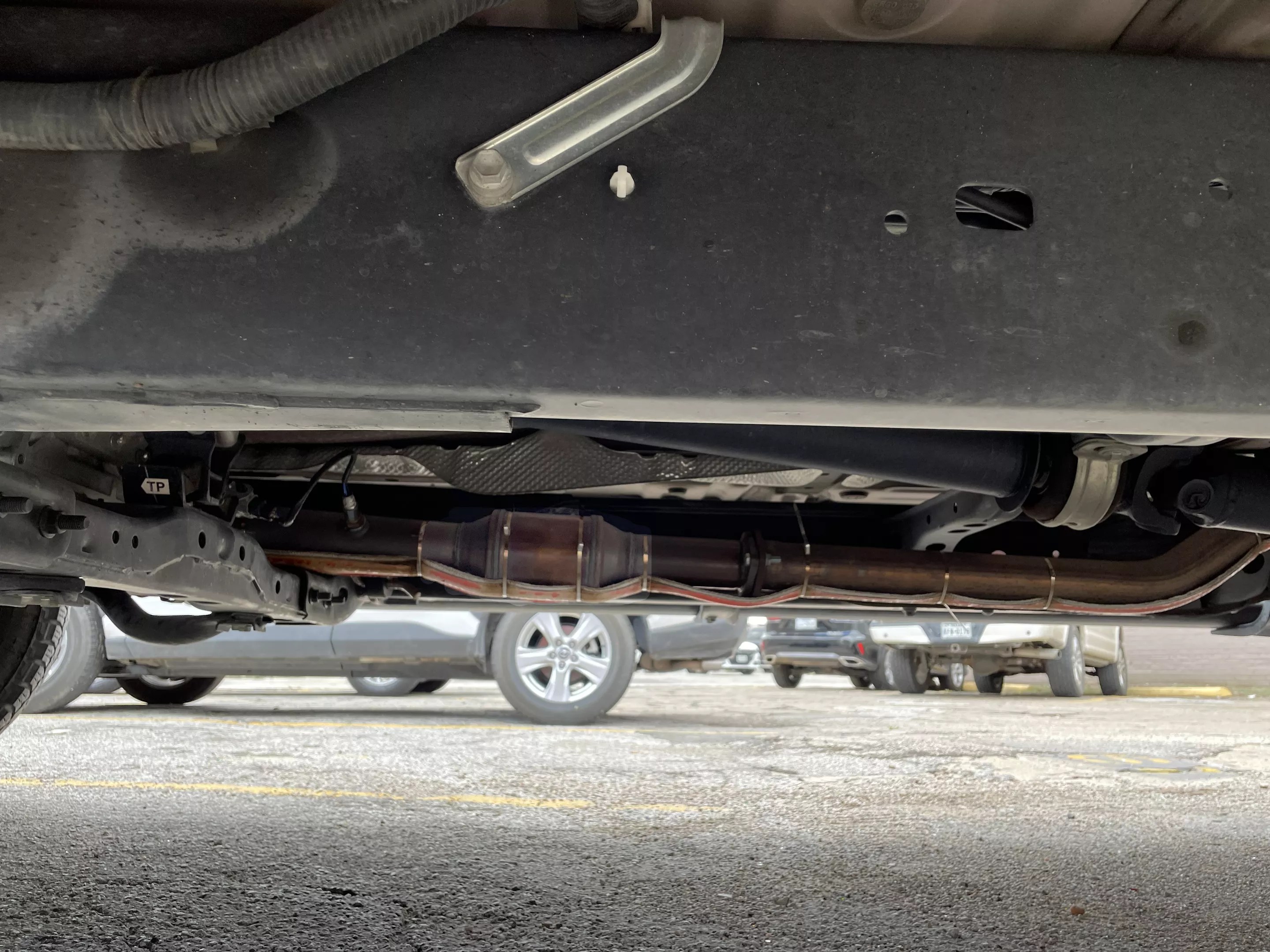
Patrick Williams

Audio By Carbonatix
Catalytic converter thefts in Dallas are on the rise, and according to the Dallas Police Department, there were nearly four times as many thefts in 2021 compared with 2020. This year is on track to be even worse.
In 2020, there were 655 thefts in Dallas, and only 123 in 2019. In 2021 the theft count rose to 2,212. This year, not even six months in, the tally has reached 1,072, so the trend is not going away.
“The Dallas Police Department is aware of the increasing rise in catalytic converter thefts,” said Melinda Gutierrez, senior corporal at the Dallas PD media relations office. “We encourage the community to park in well-lit areas, be aware of their surroundings, and report suspicious activity.”
Catalytic converters are a required part of every motor vehicle as they convert harmful compounds in a car’s exhaust into less harmful byproducts.
The catalytic converter uses a catalyst made of platinum and palladium to convert carbon monoxide into carbon dioxide, hydrocarbons into carbon dioxide and water, and nitrogen oxides into nitrogen and oxygen.
Why are they being stolen? The elements used in the catalyst, platinum, palladium and gold, are expensive and can be sold for profit. Not to mention, they are easy to steal, so thieves can make a lot of quick money from taking them.
Shane Wolfe, the CEO of Euro-Spec Service, an import car repair and maintenance shop, said: “Some of them are professionals. They have a watch, a lookout guy, and then they have their electric Sawzalls, and they can cut them off in less than five minutes.”
Catalytic converters are hung in the undercarriage of the vehicle attached inline to the exhaust, so all a thief needs to do is get under the car with an electric saw or something similar that will cut metal, slice through the exhaust pipe on either side of the converter, then get away. And since every car on the road is required to have one, there are many opportunities to do so.
Catalytic converters are expensive to replace, costing anywhere from $300 to $2,500 just for the part. On top of that, labor could cost between $70 and $130 per hour, so depending on the car a person could pay upwards of $3,000 to have one replaced.
Patrick Williams, the Observer’s editor in chief, was among the victims this spring. He drives a 2019 Toyota pickup and learned that those and other high-clearance vehicles are favorite targets for thieves, since they can easily scoot underneath, make two quick cuts and be gone in no time. His truck, he said, was parked in daylight on an open lot downtown, a block from Dallas Municipal Court.
Replacing his converter cost around $1,700, plus another $200 for something called a cat strap, a ribbon of kevlar surrounding a bundle of tough wires that are clamped down the length of the truck’s tailpipe. It’s intended to increase how long it takes to cut through the exhaust pipe and thus encourage thieves to find easier pickings elsewhere.
Buying and selling catalytic converters is not illegal, so without a tracking system there isn’t much that can be done. Converters generally don’t have a VIN or serial number on them, so tracking stolen ones isn’t an option.
Simply not replacing a stolen one is not an option either, at least for law-abiding people who ever intend to sell or trade in their car. In Texas, the fine for selling a vehicle with its catalytic converter removed can be as much as $25,000.